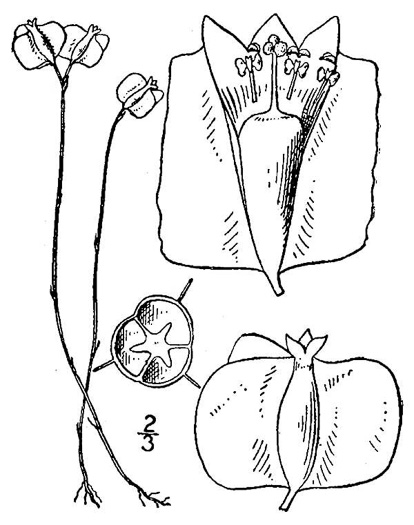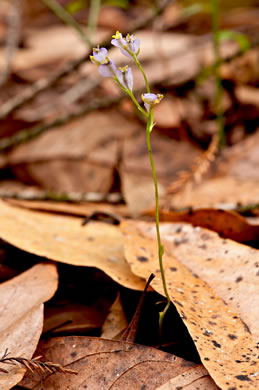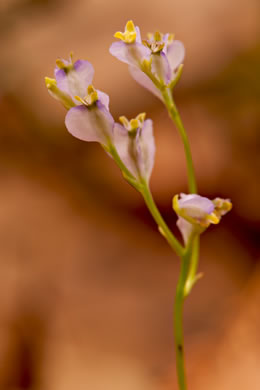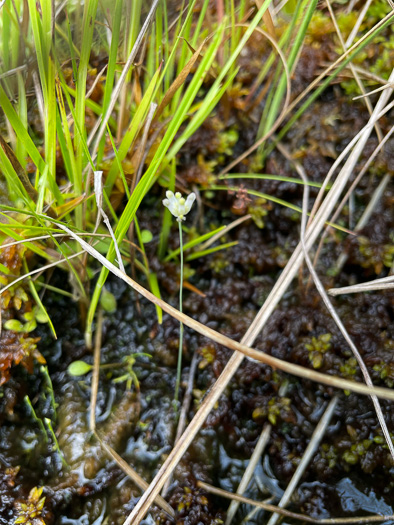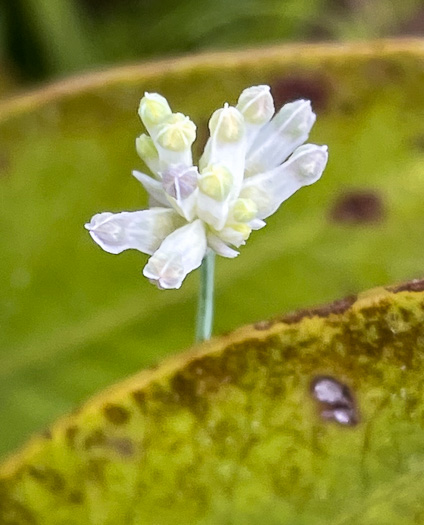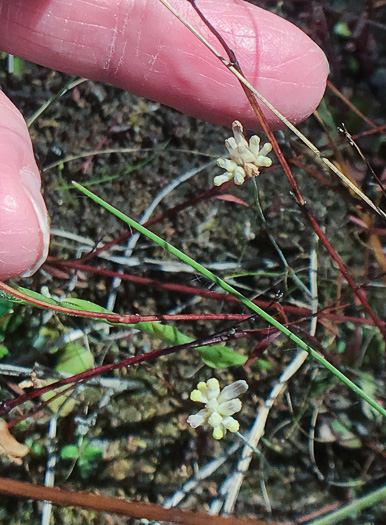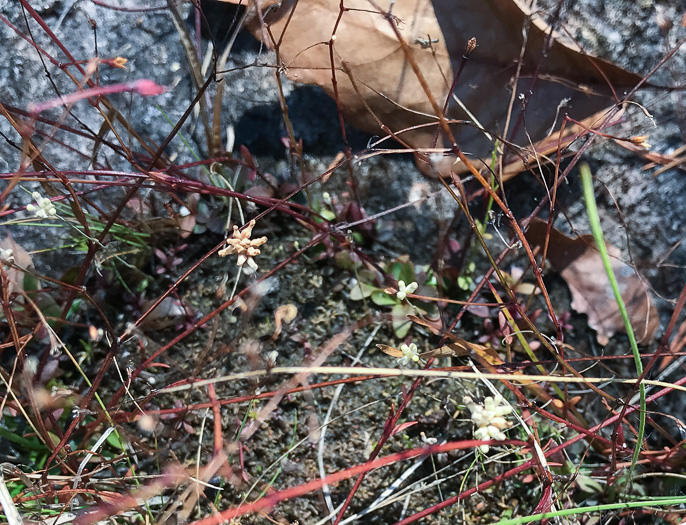Hovering over an image will enlarge it and point out features (works better on desktop than on mobile).
![]() A camera indicates there are pictures.
A camera indicates there are pictures.
![]() A speaker indicates that a botanical name is pronounced.
A speaker indicates that a botanical name is pronounced.
![]() A plus sign after a Latin name indicates that the species is further divided into varieties or subspecies.
A plus sign after a Latin name indicates that the species is further divided into varieties or subspecies.
Most habitat and range descriptions were obtained from Weakley's Flora.
Your search found 2 taxa in the family Burmanniaceae, Burmannia family, as understood by Weakley's Flora.

![]() Common Name:
Violet Burmannia, Northern Bluethread, Blue Burmannia
Common Name:
Violet Burmannia, Northern Bluethread, Blue Burmannia
Weakley's Flora: (4/24/22) Burmannia biflora FAMILY: Burmanniaceae
SYNONYMOUS WITH PLANTS National Database: Burmannia biflora FAMILY: Burmanniaceae
SYNONYMOUS WITH Vascular Flora of the Carolinas (Radford, Ahles, & Bell, 1968): Burmannia biflora 048-01-001 FAMILY: Burmanniaceae
Habitat: Pine savannas, bogs, shores of Coastal Plain depression ponds
Common in Coastal Plain of GA & SC, uncommon in NC, rare in Piedmont
Native to the Carolinas & Georgia

![]() Common Name:
White Burmannia, Southern Bluethread
Common Name:
White Burmannia, Southern Bluethread
Weakley's Flora: (4/24/22) Burmannia capitata FAMILY: Burmanniaceae
SYNONYMOUS WITH PLANTS National Database: Burmannia capitata FAMILY: Burmanniaceae
SYNONYMOUS WITH Vascular Flora of the Carolinas (Radford, Ahles, & Bell, 1968): Burmannia capitata 048-01-002 FAMILY: Burmanniaceae
Habitat: Pine savannas, bogs, shores of Coastal Plain depression ponds
Uncommon in Coastal Plain (rare elsewhere in GA-NC-SC)
Native to the Carolinas & Georgia
Your search found 2 taxa. You are on page PAGE 1 out of 1 pages.

